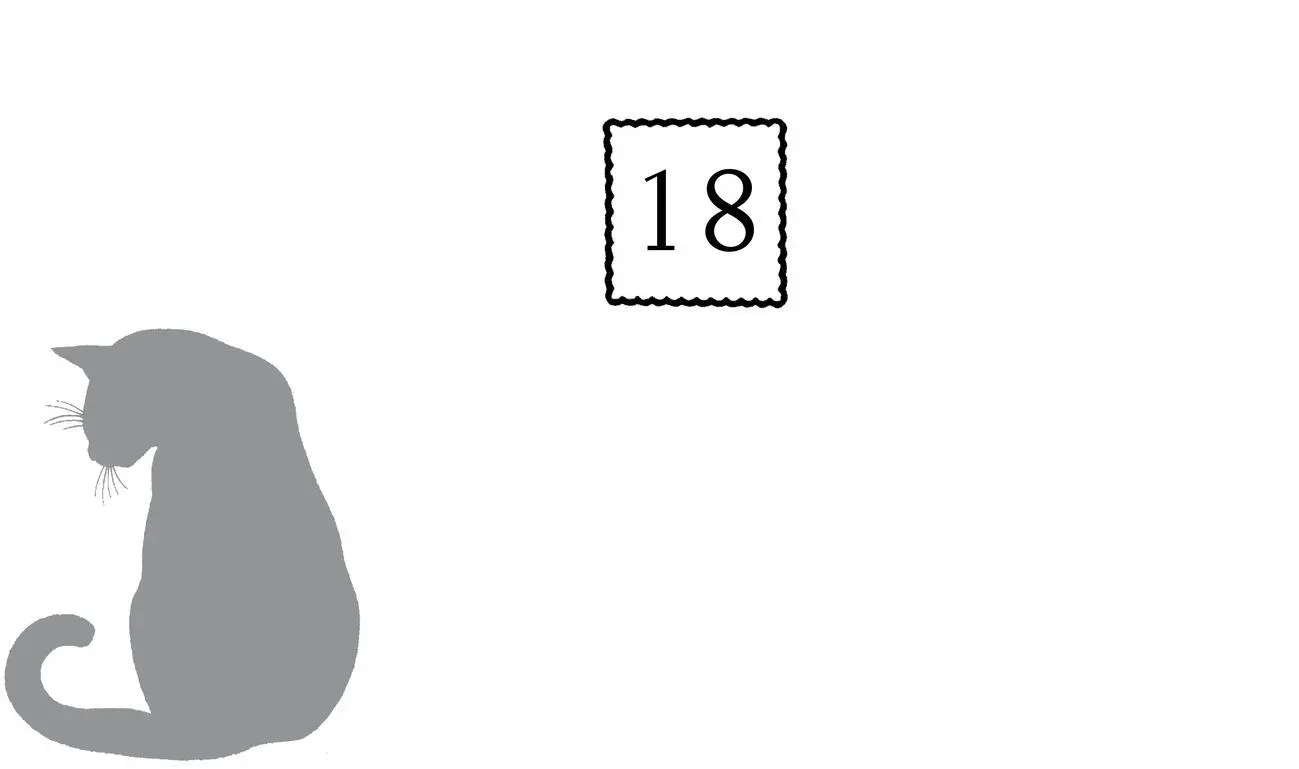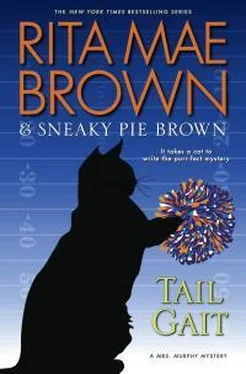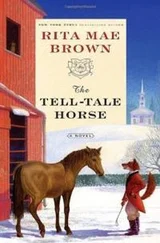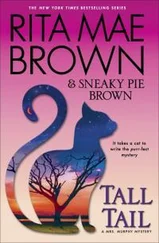Marshall straightened his tie. “Right.”
Accompanied by Nelson, Lionel, Paul, and Rudy, Marshall made his way to the open front door. Willis, hands full of glasses, passing them, hurried additional libations to the ladies. “Girls”—he was of a generation that would use this term without any hint of offense—“I’ve got to go block for the boys.”
Sandra laughed. “People will think we’re lushes.”
“Could think worse.” Harry smiled.
Susan gratefully sipped another vodka tonic. “This is overwhelming.”
“Yes, it is,” Harry observed. “I don’t know where Herb and Miranda are.”
“Maybe Herb is with Trudy and the girls,” Susan murmured. “He would be a great support.”
“He would,” Sandra agreed. “He always knows just what to do and what to say.”
The 1959 men made it through the Pavilion’s crowd. When Marshall made his announcement, only those in the room could hear, but the news rapidly spread to the outside.
“The boys” as they would probably always be known, even if they all lived to be one hundred, had to date raised six million dollars for an endowed chair in Ginger’s name: “The Professor Greg McConnell Chair in Early American History!” Cheers rippled outward like waves, and when Marshall and the boys tried to get back to their wives and friends, they moved at a snail’s pace. Everyone wanted to shake their hands and slap their backs, and a few ladies kissed them. Everyone said “Thank you” or “How wonderful.” The money engine, Tim Jardine, had called everyone he knew. Walking with the old football players, he was also feted by those who recognized his success in the business world.
One former governor was overheard saying to another, “Ah, imagine if Jardine had been our campaign treasurer!”
While not happy, if a funeral can be said to be positive, Ginger’s was. People, giddy with spring, thrilled at the endowed chair, talked, mixed, cried, and laughed. Those without the money to make handsome contributions pledged one another to various activities memorializing Ginger. Knowing this, Marshall worked the crowd, as did the others, urging people to help: any amount, even five dollars, would benefit the fund for the new chair.
Fair finally caught up with his wife, who was walking toward the arcade to get out of the sun.
She had just noticed a furtive figure lurking nearby.
Stopping, she studied the lone man hiding as best he could behind one of the Rotunda’s large pillars. “Fair, get Marshall or any of the boys, will you?”
“What?”
“Never mind. Come with me.” She hurriedly made her way through the throng to Marshall, who turned from another handshake. Harry put both her hands on his shoulders, stood on her toes, and whispered in his ear.
“Marshall, Frank Cresey is on the Rotunda behind a pillar. If Olivia comes out.” She left it at that.
Marshall turned to Paul. “Get the boys, will you?”
Within a few minutes, Marshall, Willis, Lionel, Paul, and Rudy were walking under the arcade toward the Rotunda. Harry watched with apprehension, as did Susan, now beside her. Fair, given his size, had left them to trail the other men, just in case.
“God, I hope he doesn’t make a scene,” said Harry.
—
Frank froze as he saw the other men walking toward him.
In a gentle voice, Lionel called out, “Frank, good of you to come.”
At this, Frank burst into tears, ran down the Rotunda steps away from the crowd, away from his past.
Paul began to follow when Marshall called out, “Let him go, Paul.”
Nelson also said, “Let him go. We need to rejoin the mourners.” Then he said to the others, “Does anyone have a cellphone with them?”
Willis pulled his out from his inside coat pocket, as did Marshall. “Whoever knows Sheriff Shaw’s number, call and alert him,” said Nelson. “I doubt Frank will do any harm, but we don’t want anything to upset Trudy, the girls.”
Marshall quickly dialed the sheriff’s number, as Willis did not know it by heart. Marshall was always good with numbers. He made the call. There were already university security people all around, as well as sheriff’s cars, with lights flashing, to eventually lead people to the grave site.
Trudy, Olivia, and Rennie had decided to have the reception immediately following the service. Then family members, dear friends, colleagues, and his students could follow to the grave site if they wished. Otherwise, it would have been a snarl to leave UVA grounds, then try to return.
Two hours after the chapel service, they reached the grave site.
Out of the corner of her eye, at least one hundred yards away from the grave, Harry again spied Frank. How he had gotten there was anybody’s guess, but the burial details had been printed in The Daily Progress . Perhaps he’d hitched a ride with someone. Frank’s eyes never left Olivia, but he kept his distance.
After the interment, Harry said to Fair, “Frank’s here.”
“Where?”
She looked again at the spot. “He was over there.”
Fair unobtrusively, or as unobtrusively as a six-foot-five-inch man could, moved toward Olivia.
But Frank did not show himself again or harass Olivia. Their good luck held. Frank’s good luck was running out.

April 25, 2015
Two Hours Later
Foot traffic on the Downtown Mall filled the brick sidewalk going in both directions. The lovely weather brought out residents living in the area. Other people drove downtown for an outdoor lunch.
Relaxed in a director’s chair, Snoop sat under the overhang of the small crook of buildings next to the Paramount Theater. The shade felt wonderful. At his feet rested a colorful painted bucket. He’d made wooden letter openers with a sharp point, priced at two dollars each. People would walk by, notice how smooth and graceful they were, and figure for two dollars, how could they go wrong? Some folks were even nice enough to forgo making change, giving him a few extra dollars. With business this brisk, the night ahead looked promising, for Snoop would be able to buy a bottle of real liquor, not wine. He hated wine, although he’d drink anything if he had to do so. Even Listerine contained alcohol.
Half dozing, the shuffle of feet opened his eyes.
“Hey, man,” said Frank.
“Hey.” Snoop smiled at him.
Frank dropped next to Snoop, sitting on the ground. The bricks were hard beneath him, but he didn’t seem to care. “Heard some of the bastard’s funeral.”
“Who?”
“The Professor. Greg McConnell.”
Snoop said, “Why go, if you don’t like him?”
Frank grunted. “To make sure he’s dead.” He paused. “Taught me a lot about history, though. I’ll give him that. Taught me it all comes down to history.”
They both laughed.
A middle-aged woman stopped, picked up a letter opener, noticing the veining in the wood. “Red oak,” she said.
“Yes, Ma’am.”
“I can never resist red oak.” She fished two one-dollar bills out of her cloth shoulder bag, handing them to him.
“Thank you and hope you only open happy mail,” said Snoop.
Frank plucked a letter opener out of the painted bucket. “Downed tree?”
“One blew over near the railroad track. I stashed what I could. Been busy ever since.”
The railroad line ran parallel just south of the mall. The small old C&O station at the northern end was no longer in use. Another brick station farther away handled passenger traffic. All across the United States, tidy small stations had been abandoned. Many towns no longer had passenger service. Those that did had nothing near the standard of the old days. Still, anything was better than getting ensnarled in Washington, D.C.’s traffic a hundred miles north. A pity the nation’s capital wasn’t on the Buffalo border, close enough to Canada’s capital. Many a resident in these parts, Virginia, Maryland, a sliver of West Virginia and southern Pennsylvania, would have thrown a joyous going-away party, thrilled to shift the congestion to upstate New York. Of course, those who made their living in the maw of endless traffic might feel otherwise. Once just to feel truly free again, Snoop and Frank hopped a freight boxcar, rode to Culpeper, Virginia, then hopped one back.
Читать дальше













